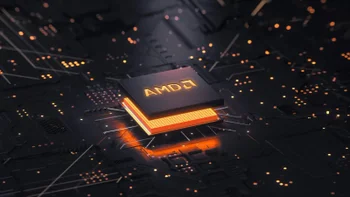Samsung AMD GPU beats latest iPhone chip yet again in benchmark tests

Samsung continues testing its AMD GPU for the in-house Exynos 2200 chip that will hopefully power at least some variants of the Galaxy S22 range. We have heard time and again that it will be on par with the Apple A14 Bionic chip and possibly even the M1 processor, and the latest graphics benchmark scores that have appeared on South Korea's Clien message board (via Tron) suggest the same.
This Samsung AMD GPU benchmark test was apparently conducted in June. The GPU allegedly has six compute units (CU) and is clocked at 1.31Ghz. Here is how the chip performed:
There are the results for the A14-powered iPhone 12 Pro from GFXBench:
Now that Samsung has adopted Arm's CPU cores, the situation has improved, but graphic performance continues to be a problem because the company uses Arm's Mali GPUs which are not as fast as Qualcomm's Adreno GPU.
So, even if the Exynos 2200 doesn't perform as well as the A15 Bionic, most Samsung users probably won't mind, as long as it doesn't lag behind Qualcomm's next flagship chip, the Snapdragon 898.
This Samsung AMD GPU benchmark test was apparently conducted in June. The GPU allegedly has six compute units (CU) and is clocked at 1.31Ghz. Here is how the chip performed:
- Manhattan 3.1: 170.7 Fps
- Aztec Normal: 121.4 Fps
- Aztec High: 51.5 Fps
Benchmark results that were posted online earlier this year were even more impressive, which means Samsung has probably throttled performance to prevent overheating issues.
- Manhattan 3.1: 181.8 Fps
- Aztec Normal: 138.25 Fps
- Aztec High: 58 Fps
There are the results for the A14-powered iPhone 12 Pro from GFXBench:
- Manhattan 3.1: 146.4 Fps
- Aztec Normal: 109.2 Fps
- Aztec High: 39.9 Fps
While that certainly sounds promising (if you are a Samsung fan), keep in mind that Apple's next handset collection, the iPhone 13 range, will probably still maintain its lead over Samsung phones. That's because they will be powered by the new and improved A15 Bionic chip. Moreover, Samsung might throttle the performance of its chip further.
Samsung has received a lot of criticism in the past from European and Middle Eastern customers because those regions usually get Exynos-powered flagships, which are perceived by some as inferior to the models fueled by Qualcomm's premium Snapdragon SoCs.
Now that Samsung has adopted Arm's CPU cores, the situation has improved, but graphic performance continues to be a problem because the company uses Arm's Mali GPUs which are not as fast as Qualcomm's Adreno GPU.
So, even if the Exynos 2200 doesn't perform as well as the A15 Bionic, most Samsung users probably won't mind, as long as it doesn't lag behind Qualcomm's next flagship chip, the Snapdragon 898.













Things that are NOT allowed: